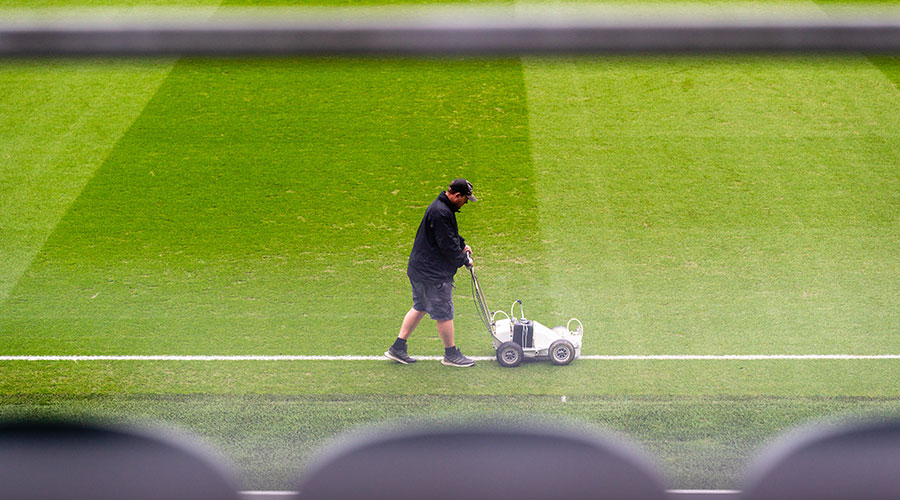Landscape Services Department Acts as On-Campus Contractor
Gerry Dobbs first read the statistic more than 20 years ago, but the landscape services manager with Michigan State University (MSU) remembers the details as though the article just landed on his desk.
When describing the way his department manages the sprawling East Lansing, Mich., campus, Dobbs refers to a 1988 article stating 62 percent of college freshmen — once they settle curriculum issues — choose their college or university based on the appearance of the campus. That point remains ingrained in his memory.
"We're in the marketing business," Dobbs says. "As a result, we worked with quite a few of our front-line staff — we met for about a year — to decide how we're going to transition from the grounds maintenance department to Landscape Services. It was quite a chore, but also, everybody participated in that, and they became excited that they now have some ownership out there."
Landscape Services is responsible for the everyday maintenance tasks typical of commercial or institutional grounds departments, but Dobbs and his staff also act as an on-campus contractor for construction and renovation projects the university's various departments tackle regularly.
"We've been going after the work aggressively, saying, 'Yes, we can do this,'" Dobbs says. "Especially in light of the current economic situation, particularly in Michigan, the more of this type of work we can go after and accomplish, the less reliance we have on general-fund monies."
Taking a holistic approach to managing the university's landscapes and hardscapes allows the department to get involved in the design and construction of renovation and new construction projects, evaluating ways the projects will impact maintenance. The department's unique organizational structure has allowed Dobbs and his staff to focus on grounds maintenance tasks and larger-scale projects, transforming the campus into an asset for the university.
Focus on Service
Maintaining the 2,600-acre campus, which includes buildings, roads, sidewalks, turf, and landscaped areas, can be a challenge for Landscape Services, whether the task involves repairing sidewalks and entryways, fertilizing flowerbeds, or mowing turf. But the department has evolved from a maintenance-oriented organization to a group university departments rely on for small- and large-scale projects.
When departments, such as the Division of Residential and Hospitality Services, are planning a project, they first give Landscape Services an opportunity to accept the job. The department rarely passes up the opportunity, but if Dobbs decides a project is not a good fit or the timing is off, he is responsible for finding an outside contractor to do the work.
Related Topics:















